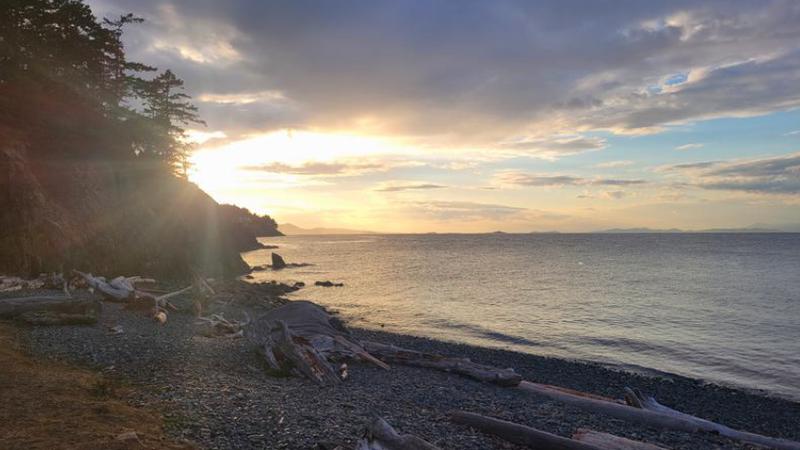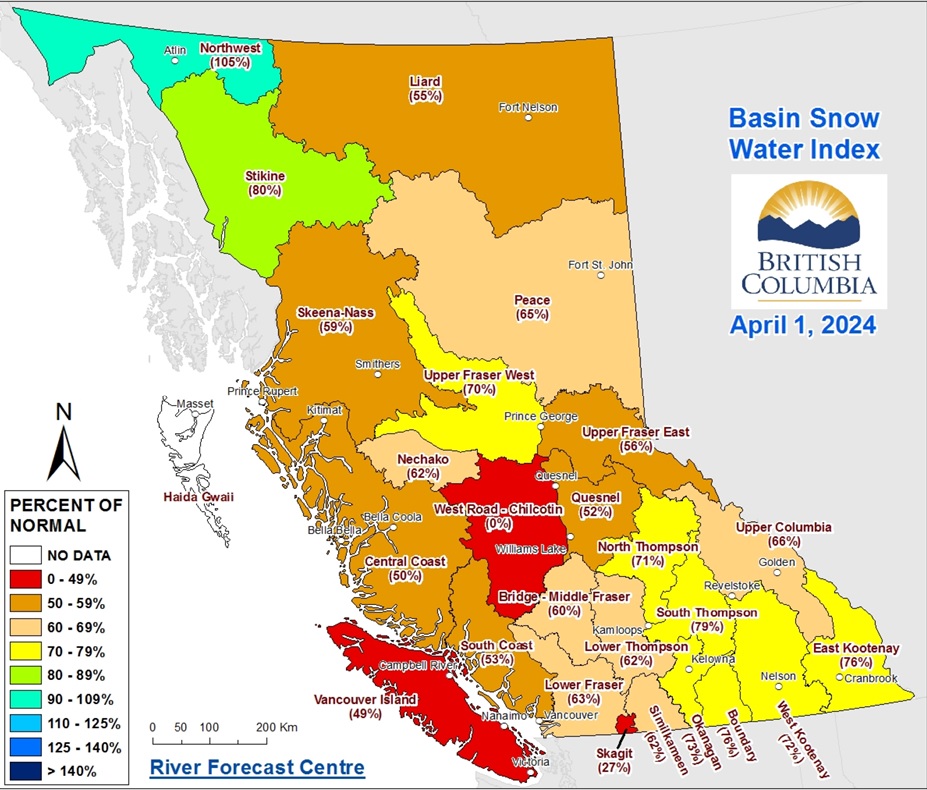
Snowpack in B.C. at lowest level since 1970
NANAIMO — Snowpack levels in B.C. mountains are at their lowest point in more than 50 years, with Vancouver Island reserves among the lowest in the province.
The April 1 snow survey and water supply bulletin shows the Island at only 49 per cent, an increase of 3 per cent from March, when snowpack levels reached their second-lowest point in provincial history.
Hydrologist with the river forecast centre Jonathan Boyd said despite Vancouver Island having the second-lowest snowpack in the province, none of their measurements were at record lows.
“This is including the South Coast which is at 53 per cent of normal…the lowest year recorded for these regions was 2015 when the South Coast was 13 per cent of normal and Vancouver Island was 15 per cent of normal for April 1. So the snowpack is considerably higher than it was in 2015 on the Island.”



